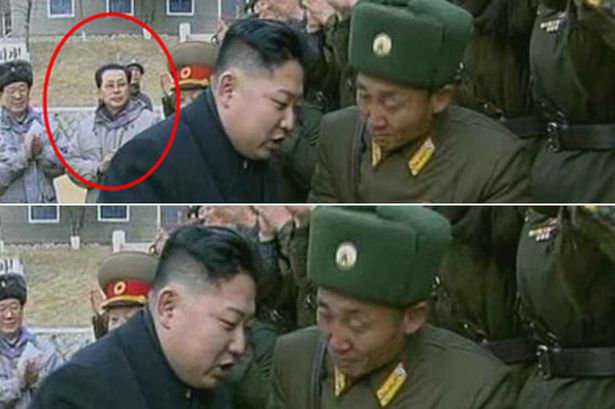Along with all the other reasons that were given, Jang Song Thaek was purged from North Korea’s leadership this week for “dreaming different dreams.”
According to a government statement, he “used drugs;” left home to “squander foreign currency at casinos;” had “improper relations with several women;” was “wined and dined at back parlors of deluxe restaurants;” and “was engrossed in such factional acts as dreaming different dreams.”
The official indictment capped his specific transgressions with an existential one. It wasn’t just what he did. What he believed in and hoped for also damned him. In the tick off of charges, Jang went from being the second most powerful person in North Korea to becoming non existent.

The literal translation of Chinese, Japanese or Korean phrases sometimes provides an oddly distilled perspective, along with a glimpse of a worldview quite different from our own. Of course, it should be expected when we eavesdrop on places that are called the Hermit Kingdom (North Korea) or where the seat of power used to be the Chrysanthemum Throne (Japan). Yes the world is flatter, but certain expressions reveal a startlingly divergent view of reality.
The gap in our understanding often has to do with whether individuals belong (that is, contribute to the “harmony” of the physical and spiritual world) or, in this instance, have stopped belonging. If I am “dreaming different dreams,” it is not only my actions but also my thoughts and aspirations that are dangerously out of sync with the order of things. If Jang’s excommunication seems ludicrous to us, it has as much to do with our personal views about individuality and privacy as it does with North Korea’s leaders.
Of course my dreams are my own….
But not so long ago, we shared our dreams with others, and our “inner life” was something we regularly brought into the broader conversation. Engaging with our communities through our politics or religion, we debated and envisioned a more perfect world together. We had more collective ways of organizing our reality then, our habits of living. We had something approximating a common worldview–all the stuff packed into that wonderful German word Weltanshauung–and were busy building into that world a proper place for minorities, women, and honoring the environment.
Not so long ago, common dreams for a better world were part of the fabric of our daily lives.
“Why don’t we have a shared project like putting a man on the moon anymore?” is how our nostalgia for America’s aspirations is often expressed. A quest like that was a way to declare our confidence and keep fear at bay instead of allowing that insecurity and fear to dominate our behavior and civic discourse.
One thing that a culture does is to give people ways of thinking about what they are doing. They can see the connections among their work, their talents, and the needs of the world. They perceive their work as belonging to a whole, some of whose possibilities are good which they help to sustain.
(Purdy, For Common Things: Irony, Trust and Commitment in America Today, at 40, emphasis added) It wasn’t so long ago that we dared to wage a War on Poverty and believed we could eliminate racial inequality because of values that we shared. But even 9/11 couldn’t jolt us back into a sense of common purpose.
What we need are dreams that are big enough for who we are today.
Of course, you have to belong to, believe in, dream about something that’s bigger than you are before you can feel the pain of being excluded from it. You need some of that experience, I think, to begin to imagine the oblivion of being “taken out of the picture,” like Jang was. Sharing a vision of the future with others in a community of dreamers brings purpose into your life and your work, while being off on your own (often as not) leaves you colder and more afraid. (On Being Part of Something Bigger Than Yourself)
“Dreaming different dreams” describes a transgression that we no longer have words for. The only cultural sins we have left are infringements on individual freedom, rights or privacy.
It is left to a strange, oppressive place like North Korea to remind us, with compact eloquence, how small the dreams we have for ourselves have become.
(Note to readers: After this post was published today, I learned that Jang Song Thaek had been executed by the North Korean government as a traitor.)

Leave a Reply